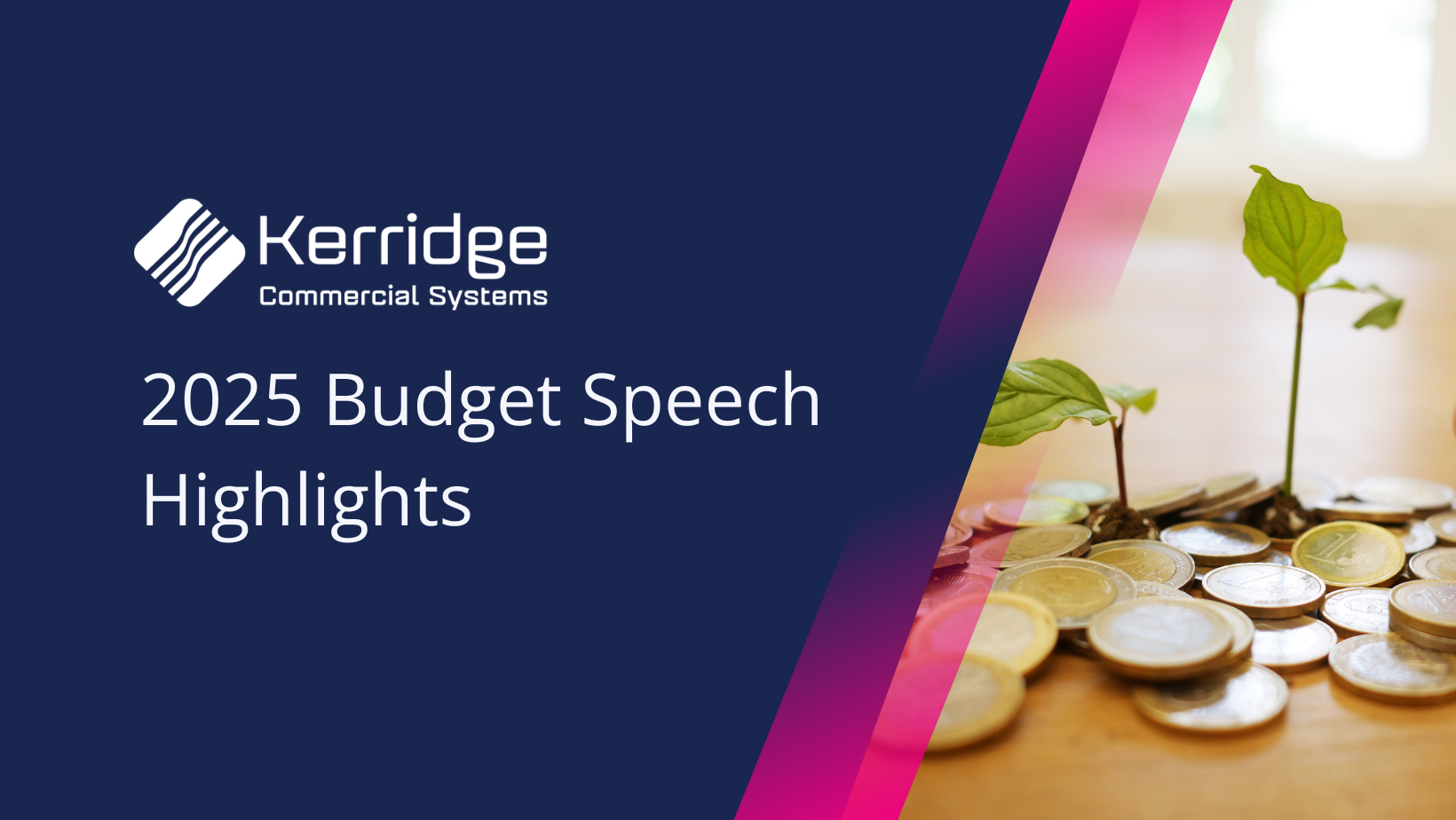
The 2025 Budget Speech finally presented by Finance Minister Enoch Godongwana on 12 March 2025 was the first presented under the Government of National Unity (“GNU”), and the first time that it was not a mere formality before being adopted by a previous majority ruling party. The opposition to an initially proposed 2% increase in the VAT rate in the February version of the Budget Speech and the insistence on a detailed review of the spending and other proposals by both GNU members and non-members has ignited a flame of hope that South Africa's complex economic challenges can finally be navigated down a path that will see fiscal sustainability and economic growth.
Fiscal prudence and debt management
A central theme of the budget was fiscal prudence. That said, there is a general sentiment amongst political parties and the man in the street that there is room for further curtailment of unnecessary spending in the budget, and this will be the focus of the parliamentary approval process over the coming weeks. South Africa's gross national debt stands at around 74% of GDP, with projections that this will stabilise at 76% in 2025/26. With debt-service costs now absorbing a fifth of total revenue, the fiscal space to support development objectives remains limited. Whilst the debt levels are not much higher than other developing or emerging markets, SA’s debt ratio has increased by more than 50% in the last 16 years and SA is spending over R1 billion per day servicing debt.
Tax proposals
- VAT increase: The budget proposed a phased increase in the VAT rate. The first increase of 0.5% is scheduled for 1 May 2025 and should yield an extra R13.5 billion in tax revenue, with a second increase of 0.5% in 2026, raising the VAT rate to 16% by the 2026-2027 fiscal year. Whilst these increases are expected to bolster public finances, they will certainly stoke inflation and dampen consumer spending, particularly affecting retailers and manufacturers. In an effort to counter this negative effect on poor households the pool of VAT zero-rated foodstuffs has been expanded. The Minister had few alternatives however, as increasing corporate taxes would impact on SA’s competitiveness, while the country’s marginal personal income tax rate is already higher than comparable countries.
- No adjustment to personal income tax brackets and medical tax rebates: With only 6.6 million assessed individual taxpayers in March 2024 against almost 28 million social grant recipients in FY25/26 (more than 30% of the SA population) there is certainly no scope to raise personal tax rates. However, the government has decided not to adjust personal income-tax brackets for inflation, leaving many individuals with less disposable income, particularly those on regular salaries who cannot restructure their packages. This measure is expected to raise R18 billion in 2025-2026, and R19 billion and R20.3 billion in the subsequent years and is larger than the impact of the VAT increases. There are also no inflationary adjustments to medical tax contributions, which will raise R1.5 billion in 2025-2026.
- Excise duties and fuel levies: From 1 April 2025 excise duties on alcoholic beverages, pipe tobacco, cigars, cigarettes, and vaping products will increase by between 4.8% and 6.8%. Fuel levies are unchanged, providing some tax relief amid higher fuel prices.
- Adjustment of transfer duty: With effect from 1 April 2025, the monetary thresholds for transfer duties will be adjusted by 10 per cent to compensate for inflation. Property transfer values of less than R1.21 million will not attract transfer duty.
Economic Development Initiatives
The projected average economic growth rate is 1.8% for the period 2025 to 2027 and the forecast for headline inflation is 4.4%. The budget introduces several measures to stimulate economic growth, including R1 billion for the local production of electric vehicles (EVs) and related technologies. This initiative is aligned with South Africa’s goal to become a leader in EV production by 2035, attracting global automotive manufacturers and strengthening the local manufacturing sector. Further good news for the construction sector is that government plans to invest R1.03 trillion in infrastructure projects through to 2028, boosting demand for materials and construction services.
Key tax observations
- In 2025/26, SARS will focus on addressing the tax gap to improve revenue collection. This will be done by improving taxpayer compliance and trade facilitation by leveraging artificial intelligence and data science. SARS is deploying technologies to simplify its processes and enhance the single window platform to improve taxpayer and trader service. Adopting scanning technologies and intelligent image analysis will significantly reduce inspection times through ports of entry.
- The urban development zone tax incentive sunset date will be extended by five years to 31 March 2030.
- Diesel refunds for the primary sector (farming, mining and forestry businesses) currently qualify for a refund of the general fuel levy and RAF levy for 80 per cent of eligible diesel fuel purchases. It is proposed that with effect from 1 April 2026, the full amount of the levies will qualify for a refund.
Conclusion
The 2025 budget reflects a balance between fiscal discipline, stabilising debt levels and as far as is possible, investing in economic growth and social development. What the Minister and the GNU cannot ignore is that taxpayers are becomingly increasingly agitated at the levels of corruption and wasteful expenditure, and this is where efforts of titanic proportions are required to steer the ship in the right direction to recovery. Given the objection by other quarters of the GNU to the tax increases, whether this is the final chapter is still to be decided, and we will keep you updated on what transpires.
Written by AJ Jansen van Niewenhuizen
If you would like more information on vanbain Global’s services, please visit their website at: https://www.vanbain.com/
%20with%20TM.png?width=300&height=103&name=vanBain%20-%20Logo%20(5)%20with%20TM.png)